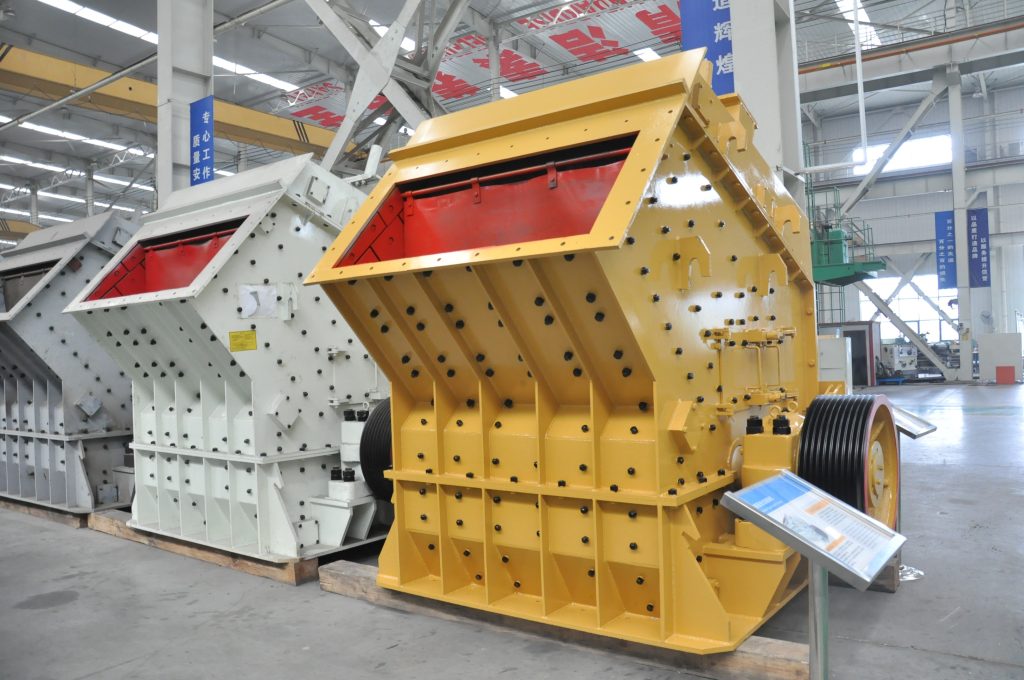Impact Crusher: Suitable Materials and Key Characteristics
In the world of crushing equipment, the impact crusher holds a special place. Unlike a jaw or cone crusher that uses compression to break rock, an impact crusher relies on a rotor with high-speed blow bars that strike the incoming material. This force shatters the rock along natural fracture lines, sending it flying against stationary impact plates. This unique method defines its ideal suitable materials and key characteristics, making it the top choice for specific applications.

Ideal Materials and Applications
The impact crusher’s mechanism makes it incredibly efficient for a select range of materials. Understanding these applications is crucial for optimizing your crushing operation.
- Soft to Medium-Hard Rocks: The primary application for an impact crusher is in quarries processing non-abrasive or low-abrasive rock. It is the perfect machine for crushing materials such as limestone, dolomite, sandstone, and chalk. Its impact action efficiently breaks these materials, and since they are not highly abrasive, the blow bars experience less wear, which helps to keep maintenance costs in check.
- Recycled Construction Materials: This is where the impact crusher truly shines. It is the go-to crushing equipment for recycling materials like concrete, asphalt, and brick. The impact method effectively separates the aggregate from the binding agents, such as cement paste or bitumen. The result is a clean, reusable product that is ideal for new aggregate production.
It’s important to note that an impact crusher is generally not suitable for very hard, highly abrasive rocks like granite or basalt. The constant, high-speed impact against these materials would cause the blow bars to wear down extremely fast, leading to high operating costs and frequent downtime.
Key Characteristics and Advantages
The unique crushing method of an impact crusher provides several distinct characteristics that offer significant advantages for its intended applications.
- Superior Product Shape: This is arguably the biggest benefit. The impact action naturally produces a high percentage of cubical-shaped aggregate. This product is a top-tier material in the construction industry because its uniform shape provides better interlocking in concrete and asphalt mixes, leading to a stronger and more durable finished product.
- High Production Efficiency: An impact crusher is a high-speed machine designed for incredible throughput. Its ability to achieve a high reduction ratio in a single pass means it can turn large feed material into a finished product quickly and efficiently, streamlining the entire crushing circuit.
- Versatility: The dual capability of processing both soft quarry materials like limestone and recycled products like concrete makes it a highly versatile machine. Many companies use it to serve both the natural aggregate production market and the growing recycling sector.
- Ease of Operation: The simple design and operation of an impact crusher make it easy to integrate into an existing plant. Many modern units are also highly automated, allowing for remote monitoring and adjustments.
Conclusion
The impact crusher is a highly specialized and powerful piece of crushing equipment. While it may not be the right choice for every material, its ability to produce a superior, cubical-shaped product and process a wide range of soft rock and recycled materials makes it an indispensable asset. By understanding its key characteristics and ideal suitable materials, businesses can make informed decisions that lead to a more efficient, profitable, and sustainable operation.
- > Can a Mobile Impact Crusher Produce Final Specification Aggregates On-Site?
- > Jaw Crushers for Quarrying: Power, Efficiency, and Durability
- > Impact Crushers for Crushing and Screening Granite and Iron Ore
- > Basalt Rock Crushers in New Zealand: A Vital Tool for Construction and Mining
- > Common Issues Associated with Jaw Crushers and Their Solutions
- > Copper Ore Impact Crusher: An Effective Tool for Secondary Processing in Ore Cleaning
- > Roll Crusher 100TPH: Efficient Crushing Solution for Medium-Scale Operations
- > Selection and Maintenance Guidelines for Cone Crusher Lubricating Oil
Hot Product


Online




Message
